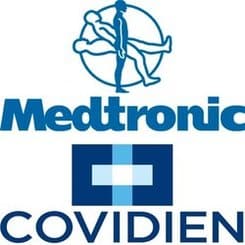
A class action lawsuit over Medtronic’s bone growth product Infuse could complicate the company’s planned acquisition of Dublin-based device maker Covidien. U.S. District Judge John Tunheim will allow lawyers for Medtronic investors to explore an alleged coverup of Infuse’s side effects by Medtronic officials, the Minneapolis Star Tribune reports. Off-label use of Infuse has allegedly […]
 A class action lawsuit over Medtronic’s bone growth product Infuse could complicate the company’s planned acquisition of Dublin-based device maker Covidien.
A class action lawsuit over Medtronic’s bone growth product Infuse could complicate the company’s planned acquisition of Dublin-based device maker Covidien.
U.S. District Judge John Tunheim will allow lawyers for Medtronic investors to explore an alleged coverup of Infuse’s side effects by Medtronic officials, the Minneapolis Star Tribune reports. Off-label use of Infuse has allegedly injured thousands of patients. Tunheim said the plaintiffs could pursue their claim that former Medtronic CEO William Hawkins purposely made misstatements to stock analysts to hide the fact that the Food and Drug Administration (FDA) had refused to approve Amplify, the next iteration of Infuse.
Legal experts say the ability to examine the alleged misstatements, combined with Medtronic’s alleged manipulation of scientific research, could damage Medtronic’s effort to acquire Covidien. If a jury finds that company officials knew of Infuse’s problem but tried to hide them, the legal shield Medtronic has used to avoid thousands of personal injury claims might also be pierced, the newspaper reports.
At issue is whether Medtronic intentionally misled investors by shaping Infuse research done by doctors who were paid a total of $210 million by Medtronic from 1996 to 2010. The shareholders suit alleges that the research overstated the benefits of Infuse while downplaying harmful side effects, including abnormal bone growth into nerves, male impotence and increased risk of cancer, according to the Star Tribune.
The class-action suit claims that the skewed research artificially propped up Medtronic share prices, but revelations about the research eventually drove share prices down, costing investors tens of millions of dollars. The judge referred to claims that Medtronic produced “investor-aimed publications” that relied on “reports on the efficacy and safety of Infuse,” when it allegedly knew that the product was neither safe nor effective, the Star Tribune reports.
In May, Medtronic settled 950 Infuse suits for $22 million and said it would hold $120 million to $140 million to settle 3,800 additional suits, according to the Star Tribune.


